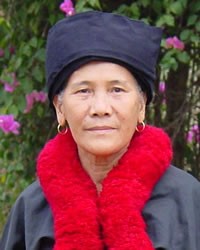Iu Mien in Laos

Photo Source:
Anonymous
|
Send Joshua Project a map of this people group.
|
| People Name: | Iu Mien |
| Country: | Laos |
| 10/40 Window: | Yes |
| Population: | 37,000 |
| World Population: | 1,678,400 |
| Primary Language: | Iu Mien |
| Primary Religion: | Ethnic Religions |
| Christian Adherents: | 8.00 % |
| Evangelicals: | 7.90 % |
| Scripture: | Complete Bible |
| Ministry Resources: | Yes |
| Jesus Film: | Yes |
| Audio Recordings: | Yes |
| People Cluster: | Yao-Mien |
| Affinity Bloc: | Southeast Asian Peoples |
| Progress Level: |
|
Introduction / History
The Iu Mien have a long history of fleeing oppression. This explains why the Chinese sometimes call them the Guoshan (Crossing the Mountains) Yao. Linguist Herbert Purnell explains, "The Iu Mien have been profoundly influenced by the Chinese over many centuries of contact. Perhaps the most significant development from these contacts has been the evolution and preservation of Taoist rituals written in Chinese characters. The Iu Mien have therefore possessed for several centuries what many other Asian peoples only dream of—an extensive written literature."
The Iu Mien originated in China, but some were hired to help the French and later the Americans in their efforts to defeat the communists in Laos and Vietnam. After the communists took over Vietnam in 1975, many fled to Thailand, France and the United States.
What Are Their Lives Like?
Houses in Mien villages are made of durable hardwood and have packed dirt floors. They are large enough for ceremonial gatherings and sturdy enough to withstand strong hurricane-force winds and torrential rains. Villagers cultivate rice and corn and gather wild jungle products such as resin and honey to trade with merchants.
Social status in Iu Mien villages is determined by behavior, accomplishment, generosity with others, and scholarship in religious studies. Within each village community, there are a select few who gain prominence because of their literacy in Chinese. Young men from well-to-do families study and master Chinese characters in the expression of Yao concepts. They become experts in the writing of ritual texts and family genealogies.
The basic village household may consist of a man, his wife, their unmarried children, their married sons and daughters-in-law, their grandchildren, and other relatives. Because the extended family lives together, child-rearing is a cross-generational affair, with grandparents giving the young parents "on-the-job training."
Each person has a well-defined role in Iu Mien society. Women are generally responsible for the day-to-day essentials of life, while men are concerned with the long-term welfare of the family. Men are also responsible for relations between the living family, their dead ancestors, and the world of spirits. In the villages, men fell the jungle trees and burn the areas to be cultivated. The women plant, hoe, and harvest. Villages work together in building houses and clearing fields and celebrate together at feasts.
What Are Their Beliefs?
The Iu Mien are Taoists who also honor their ancestors. They believe that Pan created the heavens and the earth. After the death of King Pan, the feudal court permitted his descendants to worship him and create an image of him with human features. They dedicate time and resources to ensure that their ancestors remain content and that the spirits are pacified. Well-trained priests Conduct rituals that reflect a blending of Taoist belief and animism.
There are also Christ followers among them who can be Christ-bearers to the Iu Mien people.
What Are Their Needs?
The Iu Mien need an identity based on the dignity and worth given by Jesus Christ. Their culture is largely shattered. Without a firm identity, people tend to wander into destructive behavior.
Prayer Points
Pray for believers to help the Iu Mien to put their identity in Christ, the one who came to give us life to the full.
Pray for the Iu Mien people to rediscover their culture and allow it to be redeemed by the teachings of Jesus.
Pray for Christian materials that are in the Iu Mien language to be eagerly embraced.
Pray for a movement to Christ among the Iu Mien that will affect their people no matter where they now live.